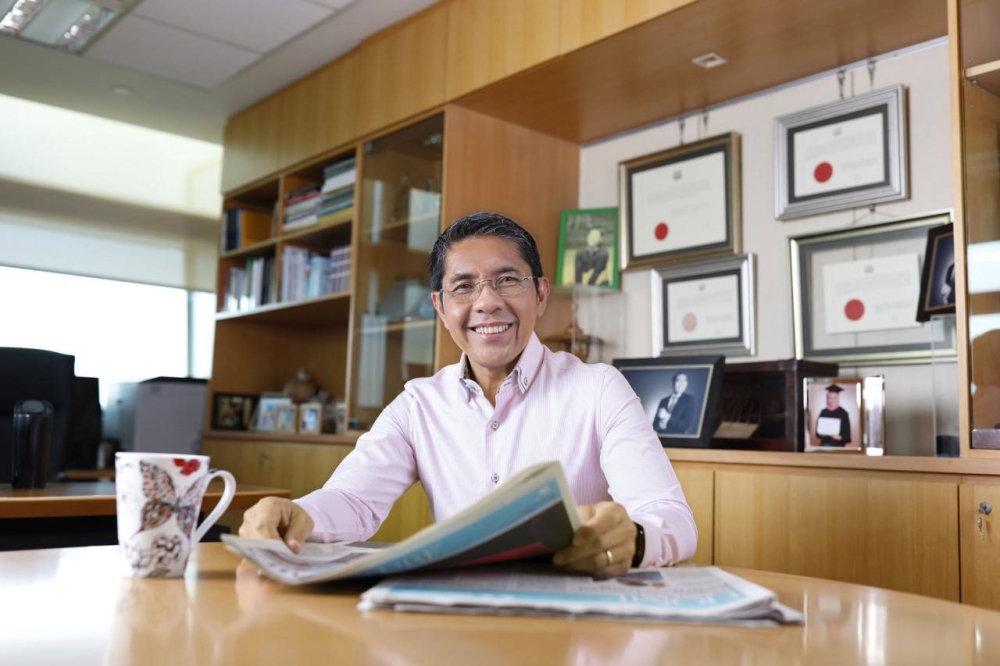S'pore Minister with M'sian origins Maliki Osman shares his journey working with PAP
NUR FAKHIRA JAAFAR
SHAH ALAM - Singapore's Second Minister for Foreign Affairs Dr Mohamad Maliki Osman, 58, was born in the year Singapore was granted independence.
His parents are from Malaysia where his father, the breadwinner of the family, worked as a bus conductor.
Life was difficult during his early days as he used to wait for his neighbours to sleep before he and his brothers lay out straw mats to retire for the night along the corridor of their one-room public rental flat.
Despite the hardship, he was blessed with supportive parents and was fortunate to be given the chance to study in National University of Singapore (NUS) for Bachelor’s and Master’s in Arts and Social Sciences.
Then he was offered a scholarship by the NUS to pursue PhD in Social Work at the University of Illinois at Urbana-Champaign in 1998, before returning to Singapore as an Assistant Professor at the Department of Social Work and Psychology in NUS.
"I initially did not consider entering politics. I was settling into my academic role when the People’s Action Party (PAP) asked me if I would consider contesting," he told Sinar.
Maliki hesitated at first because he was not confident about juggling the role of a leader, a husband and a father of young children.
However, he gradually changed his mind as he realised being a leader would allow him to play an active role in implementing changes.
He then started to set his mind into creating a system that believed everyone is an asset to society and had the potential for change, despite their skirmishes with the law.
Not only that, he was also determined to play his part in strengthening Singapore’s racial and religious harmony following the Sept 11 attacks as well as gaining support from his wife, who worked as a journalist.
Sharing his experience working as a MP and a Minister, Maliki said he was blessed to have worked in a multi-racial and multi-religious environment.
Prior to his current post as Second Minister for Foreign Affairs and Education, he had also served in the Defence Ministry and National Development Ministry.
"After working with the boys in the Boys’ Home during my early days in social work, I empathised with the plight of those with criminal records, and wanted to help them.
"I am passionate about helping those who had been incarcerated to be given second chances by society. They need stable jobs and to not be discriminated for their past doings.
Since his early involvement in social work until he was minister, Maliki had showed great interest in helping those with past criminal records to start anew and not let their past mistakes define them.
As a result of his persistence in this purpose, the Home Affairs Ministry had revised its policy and allowed records of certain crimes committed be considered spent if the person remains crime-free for a certain period of time.
Maliki said the most memorable projects as a local MP and then as State Minister at the National Development Ministry was to help displaced families find permanent homes. About 1,000 families were placed in a new home within 5 years from the ministry's intervention strategies.
He said it is especially rewarding when he could solve the people's issues after listening to their concerns. The most memorable experience he encountered was when an 80-year old Chinese lady had travel far from her home to gift him a cake to thank him for helping her with a problem she had.
"Until today, I find it especially rewarding when I am able to resolve their issues, or help to make changes to make my constituency more liveable and friendly," he said, believing that this line of work had great impact on his life.
To Maliki, the best moment was when he saw the smiles on the residents' face as they thank him and told him how his work had improve their lives.
On the downside, despite loving his job, he still finds it hard as he has to sacrifice his time with his family and sometimes sad not having enough time to witness his children grow.
He said his children saw him on television and papers more often than in person.
Therefore, he said remembering the reasons behind his decision to work in public service can be helpful.










